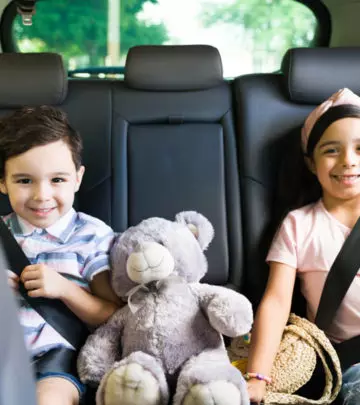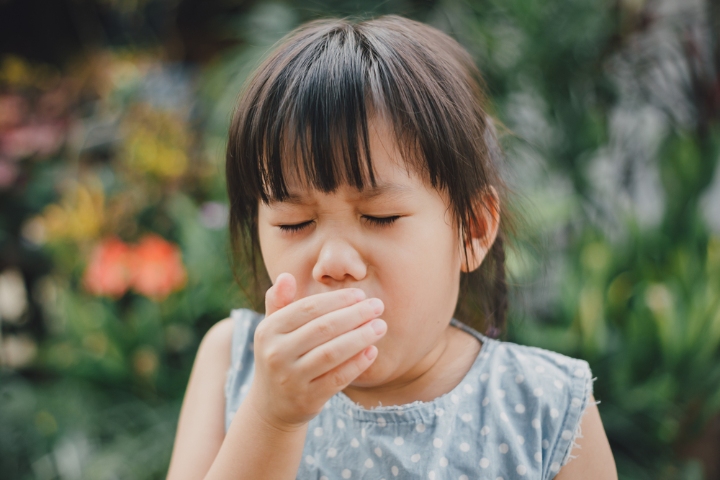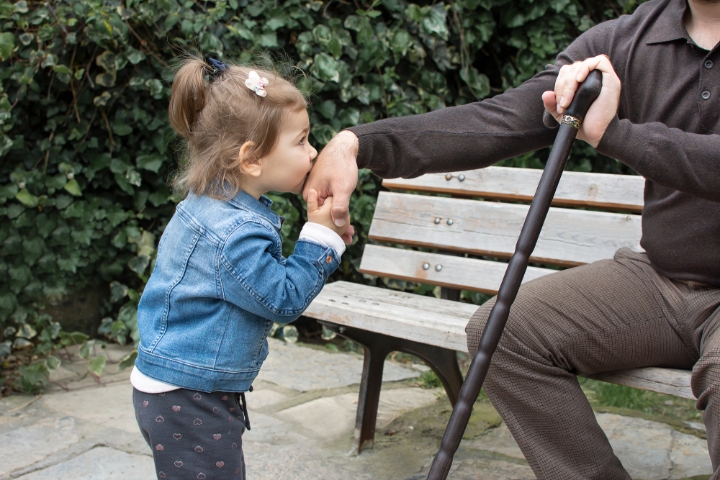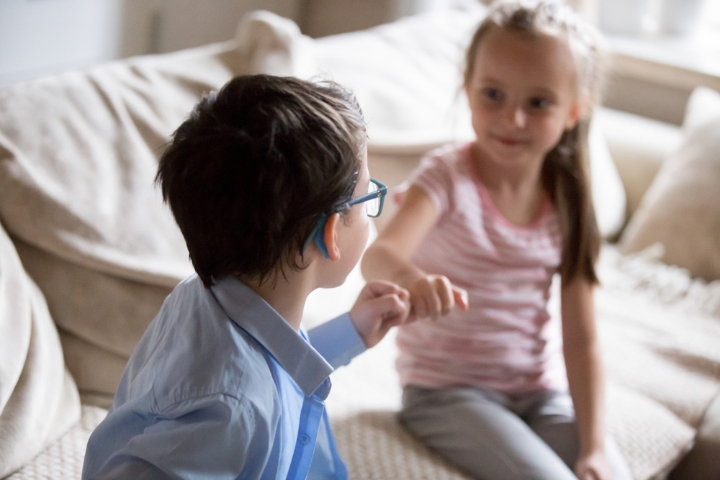
Image: Shutterstock
Good manners play an important part in any child’s upbringing. Teaching your children good manners from a young age can help them become successful, confident adults and make positive impressions on others.
So let’s find out why it is important to teach your kids manners and the 6 basic yet essential manners your kids should have to be a perfect example of a good kid. So, read along!
Importance Of Teaching Manners To Your Kids
Image: Shutterstock
- They Respect Others Well
First, teaching good manners helps kids understand the importance of respecting other people’s feelings and opinions. This is especially important in today’s society where it can be easy for kids to forget their boundaries or lack empathy towards others due to digital distractions such as phones or tablets.
- They Behave Properly
Second, teaching good manners encourages positive behavior which leads to better relationships between parents or guardians and their children. When a child knows what is expected from them socially, such as saying “please” & “thank you”, they are less likely to act out inappropriately because they understand there are consequences associated with bad behavior (i.e., being grounded).
- Improves Their Personality
Finally, learning proper etiquette instills confidence in your little ones! Knowing how to behave appropriately at home & school teaches self-discipline while providing validation that your kid has been well-trained by you, thus boosting self-esteem! A confident kid who understands basic social skills like table setting, conversation starters, etc. will feel empowered not just now but also later on down the road when faced with more challenging scenarios requiring poise under pressure!
Good Manners To Teach To Your Kids
1. Covering Mouth When Coughing Or Sneezing
Image: Shutterstock
Teaching your children how to cover their mouth when they cough or sneeze is one of the most basic yet effective ways you can help protect those around them from germs that may cause illnesses such as colds, flu, and other respiratory infections.
Ask them to practice this habit even outside the house. You could even use examples like “if someone at school has a cold then by covering up your mouth when you sneeze or cough we can stop others from getting sick too” which makes it easier for younger kids who might not understand abstract concepts yet.
2. Not Bullying Their Friends
Image: Shutterstock
Bullying is a serious issue that affects many children in schools and other social settings. It can have lasting effects on both the victim and the bully, leading to depression, anxiety, low self-esteem, or even physical harm. As parents, it’s our job to teach our kids how to not be bullies themselves and also how to defend those who are being bullied by others.
Explain to them why bullying isn’t acceptable behavior for anyone involved, neither as a perpetrator nor as an observer, and encourage them instead of using words of kindness rather than hurtful ones if someone else is being victimized by their peers at school nor elsewhere.
3. Respecting Elders
Image: Shutterstock
Showing respect for the elderly shows that you value their wisdom, experience, and knowledge. It also helps foster strong relationships between generations which can help provide valuable life lessons for kids as they grow up.
One way to teach your children about respecting elders is by setting a good example yourself. When talking with or around seniors, make sure you use polite language and show appreciation for what they have to offer through stories or advice on life experiences.
4. Being Honest Without Disrespecting Others
Image: Shutterstock
Honesty is an important life skill that can help children build trust with their friends, family members, and teachers. It also helps them develop the confidence needed for success in school and beyond. But your kids should know how much honesty they should show to others because truth can be a bit hurtful sometimes which your little stars won’t know much about.
5. Not Blaming Everything On Others
Image: Shutterstock
Pointing fingers or blaming unnecessarily can be seen as a sign of aggression or disrespect, so teaching your children that this kind of behavior isn’t acceptable can go a long way in helping them develop positive relationships with their peers and adults alike.
Show them how you interact with other people without pointing any blame or criticism toward anyone else even when things don’t go as planned!
6. Avoid Using Foul Language
Image: Shutterstock
You must talk openly with your kids about why it’s inappropriate and unacceptable behavior when someone uses foul language in public settings or around others who may find it offensive or disrespectful.
Explain how this type of behavior reflects badly on them as individuals and how they should strive instead for more positive forms of communication such as respect, courtesy, compassion, and understanding towards others at all times, no matter what situation they are in!
A well-behaving kid is always admired in every area of life. With patience and perseverance, you can easily inculcate such values in your bundle of joys. So keep on doing the good parenting and do let us in the comment section below what manners your kids have, that were praised by everyone around them. Happy parenting!



















